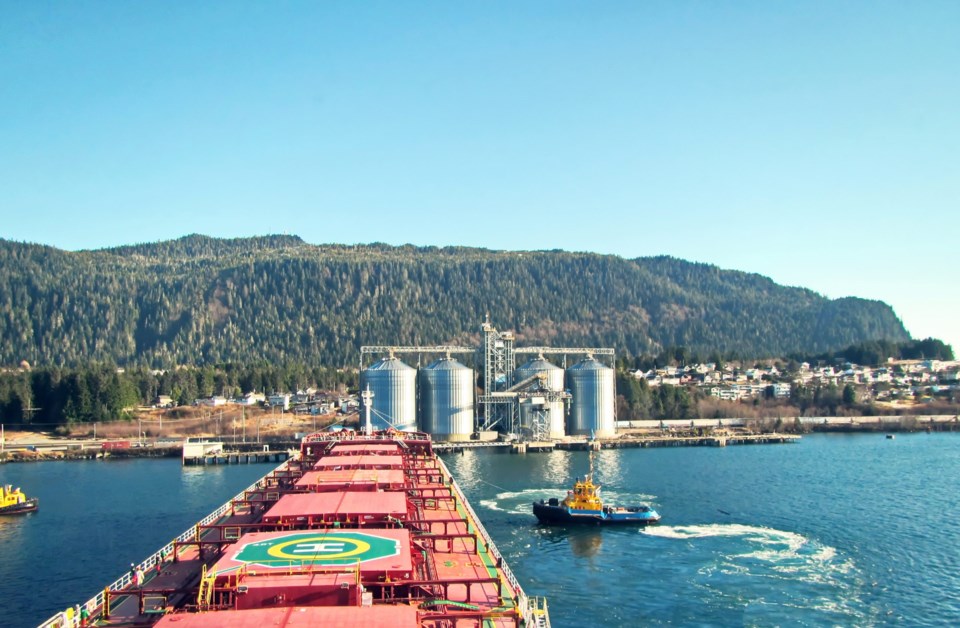Northern B.C. weathered the pandemic better than many regions of B.C. and is well-positioned to help the province recover.
But the crisis highlighted the long-time failure to deal with issues that plague two-thirds of the provincial map, says the leading think-tank on rural B.C. issues.
“Many of the underlying issues that we have pointed out in previous reports have yet to be dealt with in a meaningful way,” says Joel McKay, CEO of the Northern Development Initiative Trust, in the organization’s annual State of the North report released in February.
“Like rural areas throughout North America, our communities continue to be impacted by post-industrial market shifts, resulting in industry consolidation, the centralization of services and a lack of access to adequate and stable housing, healthcare and education.”
The north’s reliance on industry, its sparse population and the distance between communities helped mitigate the spread of COVID-19.
“Additionally, it is not inaccurate to say that current major energy projects in the region – Coastal GasLink, LNG Canada, Site C and TMX – saved our economic bacon, as it were,” McKay says.
“Collectively, at a time when many of our hotels, restaurants and service sector businesses have been tremendously impacted, the construction crews working for these major projects have generated significant local spend in many communities that have helped, in part, to offset the impacts of the virus.”
Pandemic renovations were all the rage as home owners curbed travel, helping to drive lumber prices to record highs and spurred recovery of a key industry in the regions covering the Cariboo to the Yukon border.
“Our region remains well-placed to assist with B.C.’s COVID-19 recovery,” he says.
Any crisis is an opportunity and this one, no less so.
There are indications that within B.C., people are relocating from Metro Vancouver to less densely populated areas, the report points out. People are among the scarcest of resources in Northern B.C., and the potential for population growth is good news for regions that have seen ongoing decline for decades.
But whether the trend sticks will depend largely on whether the province can deftly deal with some of those “underlying issues” that successive governments have failed to address.
Access to health care, affordable housing and access to public services continue to be problems in many northern communities.
The province and Ottawa have announced initiatives, but at this time, rural connectivity is also a potential killer of population growth.
“Key trends associated with the COVID-19 restrictions are the transition to working remotely and the shift to shopping online. In Northern B.C., the infrastructure to support remote working is limited,” McKay points out.
“For retailers try to provide online shopping, there may be challenges with reaching local customers and with transportation/logistics.”
Northern B.C. has a wealth of natural resources, a stable supply chain, a new generation of entrepreneurs and innovators and the potential to help drive the economic engine of B.C. If ever there was a time for all hands on deck, this is it.
But there’s work to be done.
“We must take a more sophisticated approach to northern development than we have in the past, choosing to spend our time, energy and resources on only those opportunities that create better outcomes for the people that call this place home over the long term,” McKay says.
Dene Moore is an award-winning journalist and writer. A news editor and reporter for The Canadian Press news agency for 16 years, Moore is now a freelance journalist living in the South Cariboo. Moore’s two decades in daily journalism took her as far afield as Kandahar as a war correspondent and the Innu communities of Labrador. She has worked in newsrooms in Vancouver, Montreal, Regina, Saskatoon, St. John’s and Edmonton. She has been published in the Globe and Mail, Maclean’s magazine, the New York Times and the Toronto Star, among others. She is a Habs fan and believes this is the year.
SWIM ON:
- Taken for granted in much of the rest of the world, Dene Moore last wrote about a BC Court of Appeal ruling that jeopardizes the right to roam.
- Even in the pandemic, the Port of Prince Rupert has kept humming. Russell Hixson looks at how and why.
- COVID-19 has pushed BC's tourism industry to the very brink. Ada Slivinski argues if it’s going to survive, government needs to step in with a plan.



